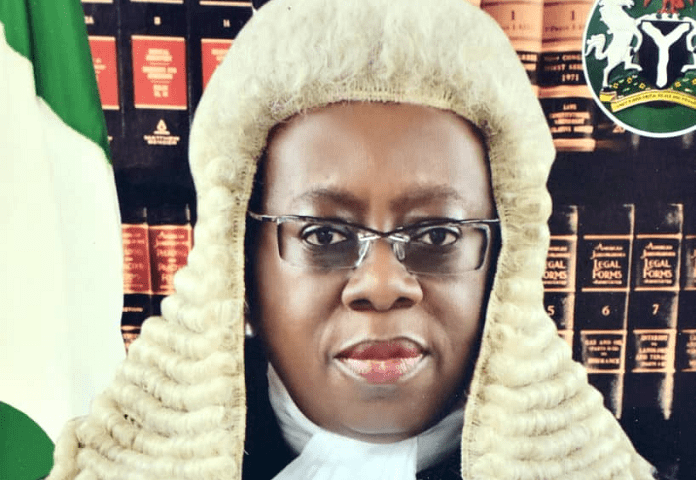

Kekere-Ekun set to become second female CJN, as Ariwoola bows out in two weeks
By Matthew Denis
Barring any unforeseen changes, Justice Kudirat Kekere-Ekun of the Supreme Court is on track to succeed as the next Chief Justice of Nigeria (CJN). If confirmed, Kekere-Ekun will become the second female CJN in Nigeria’s history, following Mariam Aloma Mukhtar, who served from July 2012 to November 2014.
Justice Olukayode Ariwoola, the current CJN, will retire on Thursday, August 22, 2024, upon reaching the mandatory retirement age of 70. As the most senior Supreme Court Justice after Ariwoola, Justice Kekere-Ekun is the leading candidate for the position.
At 66 years old, Justice Kekere-Ekun could serve as CJN for up to four years, potentially longer than the typical two-year tenure of many of her predecessors. In addition to her role as CJN, she will also head the National Judicial Council (NJC), which oversees judicial appointments, promotions, and discipline.
Born on May 7, 1958, Justice Kekere-Ekun earned her LL.B from the University of Lagos in 1980 and an LL.M from the London School of Economics and Political Science in 1983. She was called to the Nigerian Bar on July 10, 1981.
She began her legal career in private practice from 1985 to 1989 before being appointed Senior Magistrate Grade II in Lagos State in December 1989. She became a judge of the High Court of Lagos State on July 19, 1996, and served as the chairman of the Robbery and Firearms Tribunal, Zone II, Ikeja, Lagos from November 1996 to May 1999.
On September 22, 2004, she was appointed to the Court of Appeal, where she served in various divisions and as the presiding justice of both the Makurdi and Aku Divisions in 2011 and 2012, respectively. She was appointed to the Supreme Court of Nigeria as the fifth female justice on July 8, 2013.
Justice Kekere-Ekun has participated in numerous courses and seminars both nationally and internationally, earning several merit awards. She is also a life Bencher and serves as the president of the International Association of Women Judges.
The judiciary has faced significant scrutiny, particularly since Nigeria’s return to democracy in 1999. With Justice Kekere-Ekun’s anticipated appointment, the Supreme Court’s leadership transition may proceed without the controversy that has marked recent changes.
Justice Walter Onnoghen, who served as CJN from March 7, 2017, to January 25, 2019, left office under a cloud of controversy over allegations of non-disclosure of assets. His successor, Justice Tanko Muhammad, appointed on January 25, 2019, also faced challenges, including accusations from fellow justices regarding unfair treatment and welfare issues. Justice Muhammad resigned due to ill-health on June 27, 2022.
The Chief Justice of Nigeria oversees the Supreme Court and the NJC. The President nominates the CJN based on recommendations from the NJC, with the nomination requiring Senate confirmation. The CJN serves until the age of 70, death, or impeachment by the Senate, which requires a supermajority.




